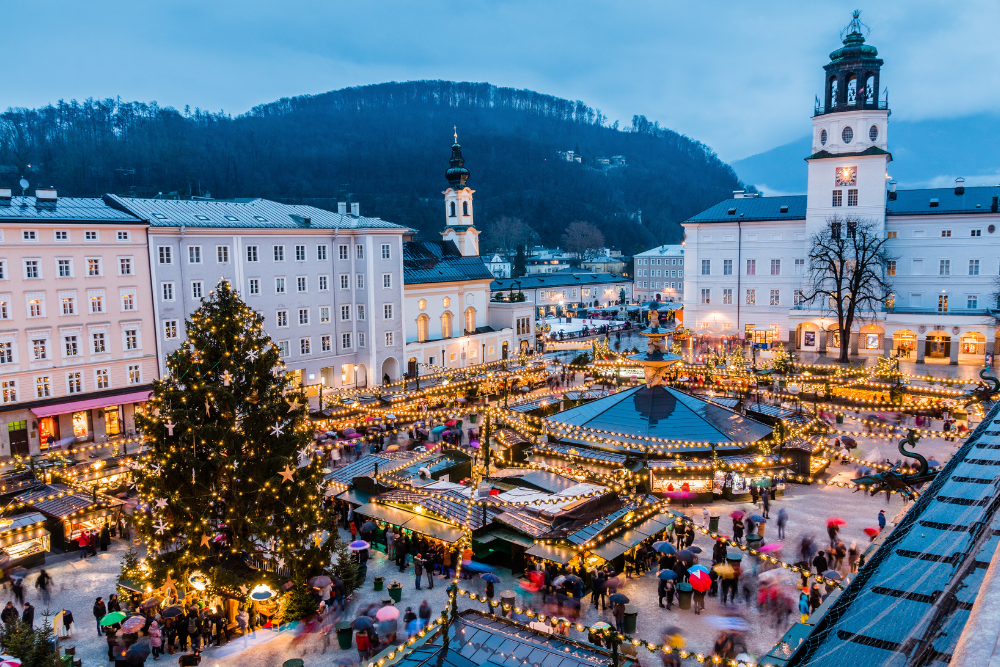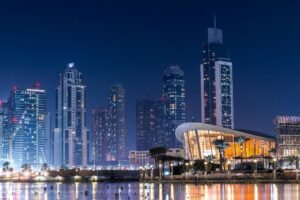The Salzburg Festival is one of the most prestigious and well-known cultural events in the world. Held annually in the Austrian city of Salzburg, the festival is a grand celebration of music, theatre, opera, and the arts. It attracts thousands of visitors from around the globe each year, eager to experience its world-class performances in the stunning backdrop of this historic city. Whether you’re a classical music aficionado, an opera lover, or simply a fan of cultural events, the Salzburg Festival offers a unique opportunity to immerse yourself in a world of extraordinary performances and artistic expression. Here’s a guide to exploring this exceptional cultural celebration.
1. A Storied History of the Salzburg Festival
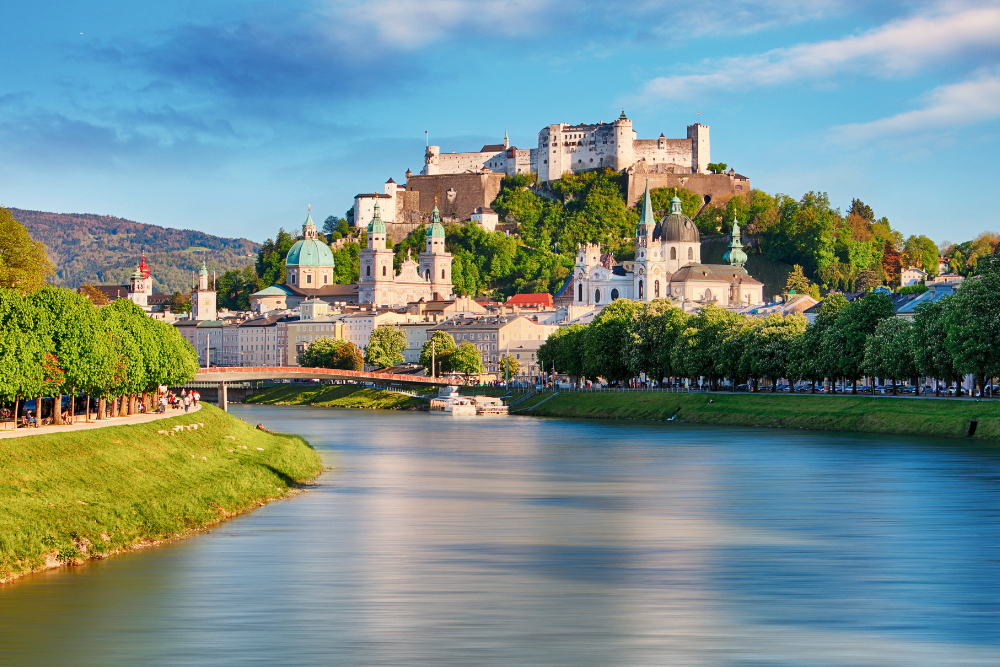
The Salzburg Festival, or Salzburger Festspiele, was founded in 1920 by the visionary Austrian playwright Max Reinhardt, composer Richard Strauss, and impresario Hugo von Hofmannsthal. The festival was created to celebrate the legacy of Wolfgang Amadeus Mozart, the city’s most famous son, and to promote high-quality theatre and music in the heart of Salzburg.
Over the decades, the festival has grown into one of the most respected cultural events in the world, attracting the finest musicians, composers, conductors, and performers. Its commitment to artistic excellence and innovative productions has earned it a reputation as a hub for classical music and theatre. The festival’s opening night is a major event, drawing attention from cultural enthusiasts and international media alike.
2. Music at the Salzburg Festival
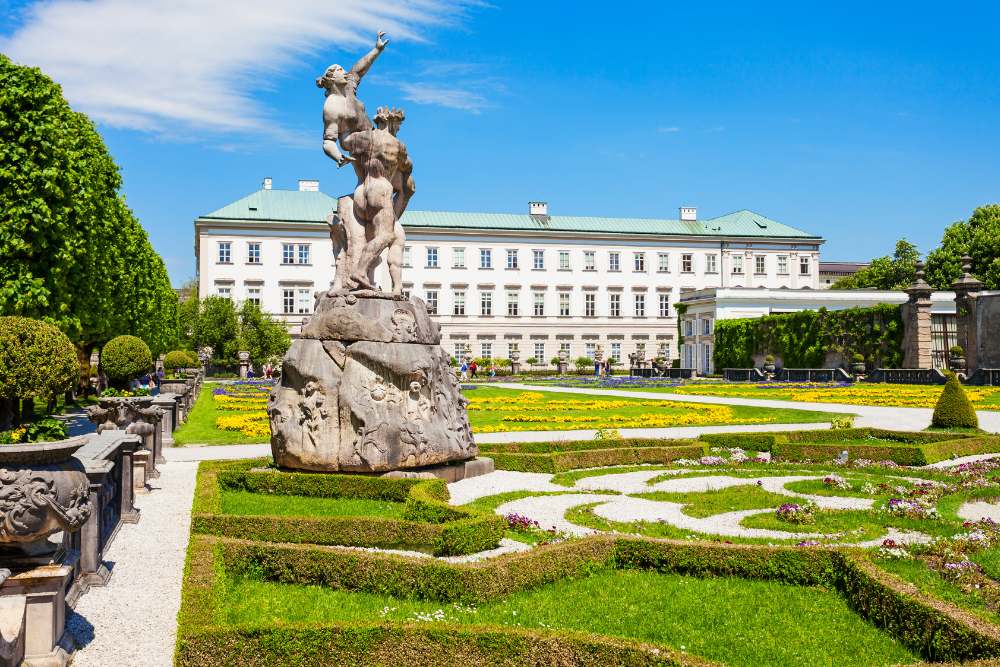
Classical music plays a central role at the Salzburg Festival, and it’s one of the event’s highlights. Visitors can enjoy concerts, symphonic performances, chamber music, and recitals, with many performances dedicated to the works of Mozart, the city’s most famous composer. However, the festival also features works from composers across all musical periods and genres, including Beethoven, Verdi, Strauss, and contemporary composers.
- Mozart’s Operas: As the birthplace of Mozart, the festival frequently showcases the composer’s masterpieces, such as The Magic Flute, Don Giovanni, The Marriage of Figaro, and Così fan tutte. These operas are often performed in stunning locations, including the Felsenreitschule, a historic theatre built into the rock face of the Mönchsberg.
- Concerts and Symphonies: Internationally renowned orchestras, such as the Vienna Philharmonic Orchestra, perform at the festival, often under the direction of celebrated conductors. The concerts take place in a variety of venues across the city, including the Grosses Festspielhaus, which is the main venue for orchestral concerts and operatic performances.
- Chamber Music and Recitals: Smaller performances, such as chamber music recitals, are also a significant part of the Salzburg Festival. These intimate concerts allow visitors to experience the virtuosity of some of the world’s best musicians in a more personal setting.
Tip: Be sure to check the festival program early and book tickets in advance, as performances often sell out quickly.
3. Theatre at the Salzburg Festival
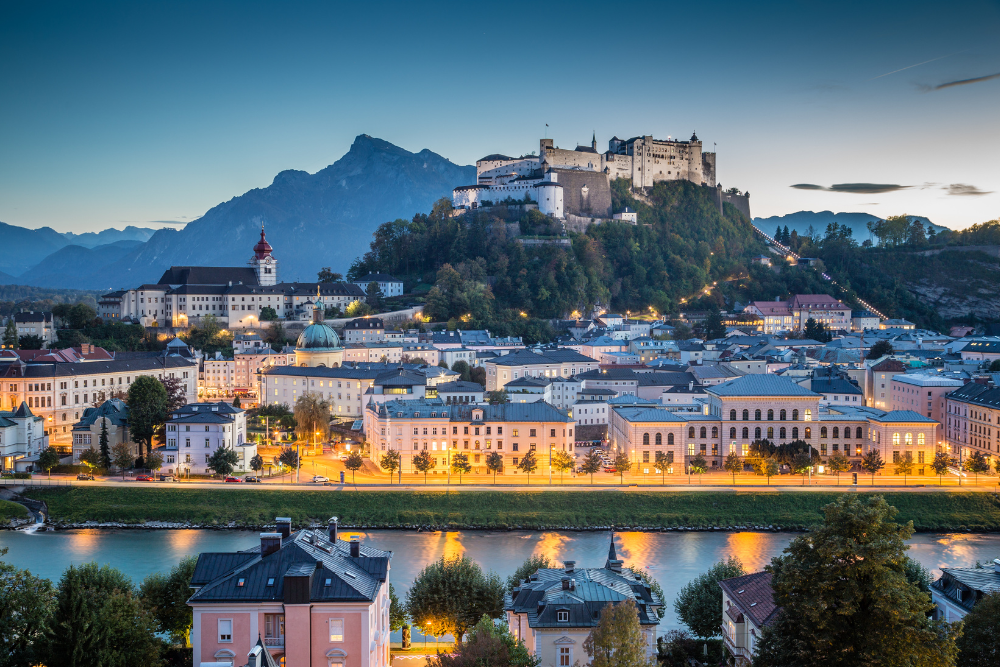
In addition to music, the Salzburg Festival is renowned for its theatre performances, which feature everything from classical plays to contemporary works. The festival offers a wide range of theatrical experiences, including large-scale productions, intimate plays, and avant-garde performances that push the boundaries of traditional theatre.
- Classical Theatre: Hugo von Hofmannsthal, one of the festival’s founders, is a key figure in its history, and his works are often featured during the festival. His dramatic works, such as The Lord’s Return and The Festival Play of the Divine Child, explore themes of spirituality and human suffering.
- Modern and Experimental Theatre: The festival also embraces modern works and experimental theatre. Productions from celebrated directors, actors, and playwrights are performed on various stages, such as the Kleines Festspielhaus and Schauspielhaus Salzburg.
- Shakespeare and Beyond: The Salzburg Festival often features performances of Shakespeare’s plays, including his tragedies and comedies, presented in innovative ways by top international theatre companies. Productions are known for their high production values, sophisticated direction, and impressive performances.
Tip: Some theatre performances are staged in outdoor settings, such as open-air venues or courtyards, adding an extra layer of magic to the experience.
4. The Felsenreitschule: A Historic Venue
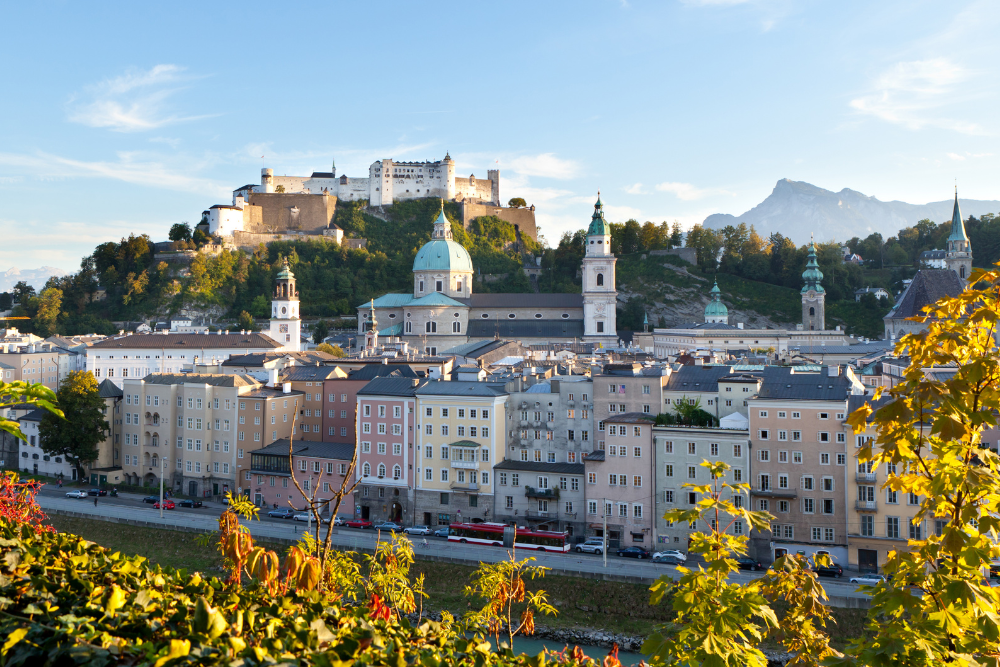
One of the most iconic and historic venues of the Salzburg Festival is the Felsenreitschule, or “Rock Riding School,” located in the heart of the city. Originally built in the 17th century as a riding school for the Archbishops of Salzburg, the Felsenreitschule is renowned for its stunning architecture and acoustics.
- Stunning Atmosphere: The venue’s unique architecture, which incorporates rock walls and arches, creates an atmospheric setting for performances. It’s one of the most atmospheric places to watch an opera or theatre production, providing an unforgettable experience.
- Mozart’s Legacy: The Felsenreitschule is closely tied to Mozart‘s legacy. In fact, it was the venue for the world premiere of his opera Idomeneo in 1781. Today, it hosts some of the most significant productions of the Salzburg Festival, especially Mozart operas.
Tip: If you’re in Salzburg, don’t miss the opportunity to visit the Felsenreitschule. It’s an incredible experience, both for its historical significance and its stunning setting.
5. The Open-Air Performances and the “Jedermann” Play
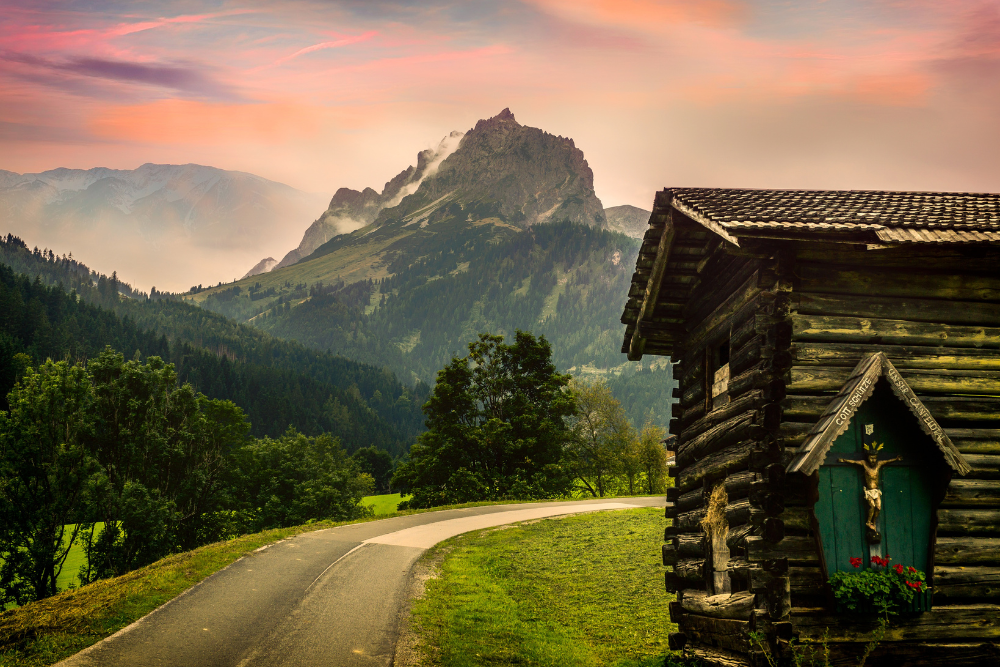
A highlight of the Salzburg Festival is the open-air performance of Jedermann (Everyman), a famous play written by Hugo von Hofmannsthal. It has been performed at the festival since 1920 and is staged in the spectacular Domplatz square, set against the backdrop of the Salzburg Cathedral.
- Jedermann: The play is an adaptation of the medieval moral play, where the protagonist, Jedermann, faces his reckoning with death. The performance is a dramatic exploration of life, morality, and salvation. Its outdoor setting, with the cathedral as a backdrop, adds to the play’s intensity and grandeur.
- Free Performances: In addition to Jedermann, the festival offers a range of free open-air concerts and performances in various squares around the city, making it accessible for visitors of all budgets.
Tip: Arriving early is recommended for open-air events, as they can get crowded, especially during the summer months.
Conclusion
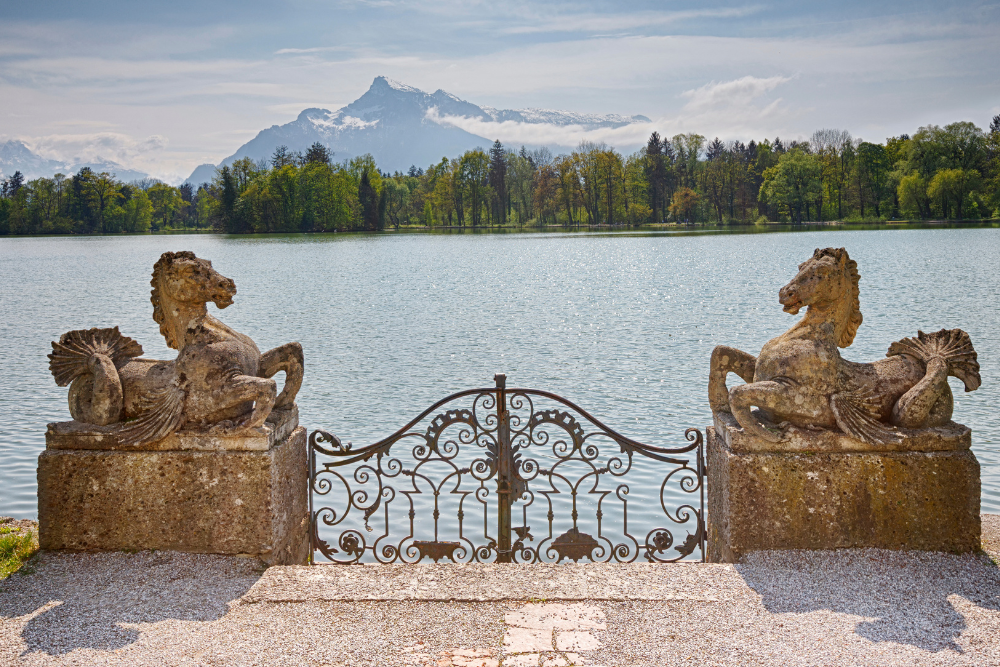
The Salzburg Festival is a once-in-a-lifetime cultural experience that combines world-class performances in a beautiful and historic setting. Whether you’re enjoying a Mozart opera in the Felsenreitschule, watching an open-air performance of Jedermann, or listening to a symphony in the Grosses Festspielhaus, the festival offers something for every lover of music, theatre, and the arts. With its rich history, stunning venues, and innovative performances, the Salzburg Festival is an essential event for anyone looking to experience the very best of Austria’s cultural heritage.



